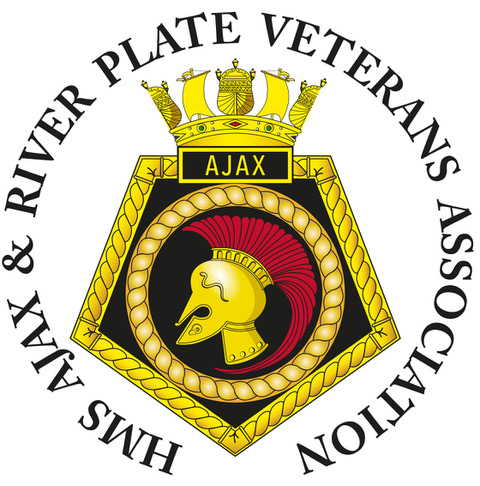1st Commission Concert Party
1st Commission Concert Party
Concert Party
This page on the Concert Party results from an enquiry from Ian Roberts, son of the late N. S. Roberts who was an engineer Lieutenant with Ajax on her first commission. In his spare time he organised the concert parties during the "flying the flag" in South America - the performers were called the "Ajax Pack of Cards". His name is mentioned in the below extract. I am grateful to Ian for the material he has supplied.
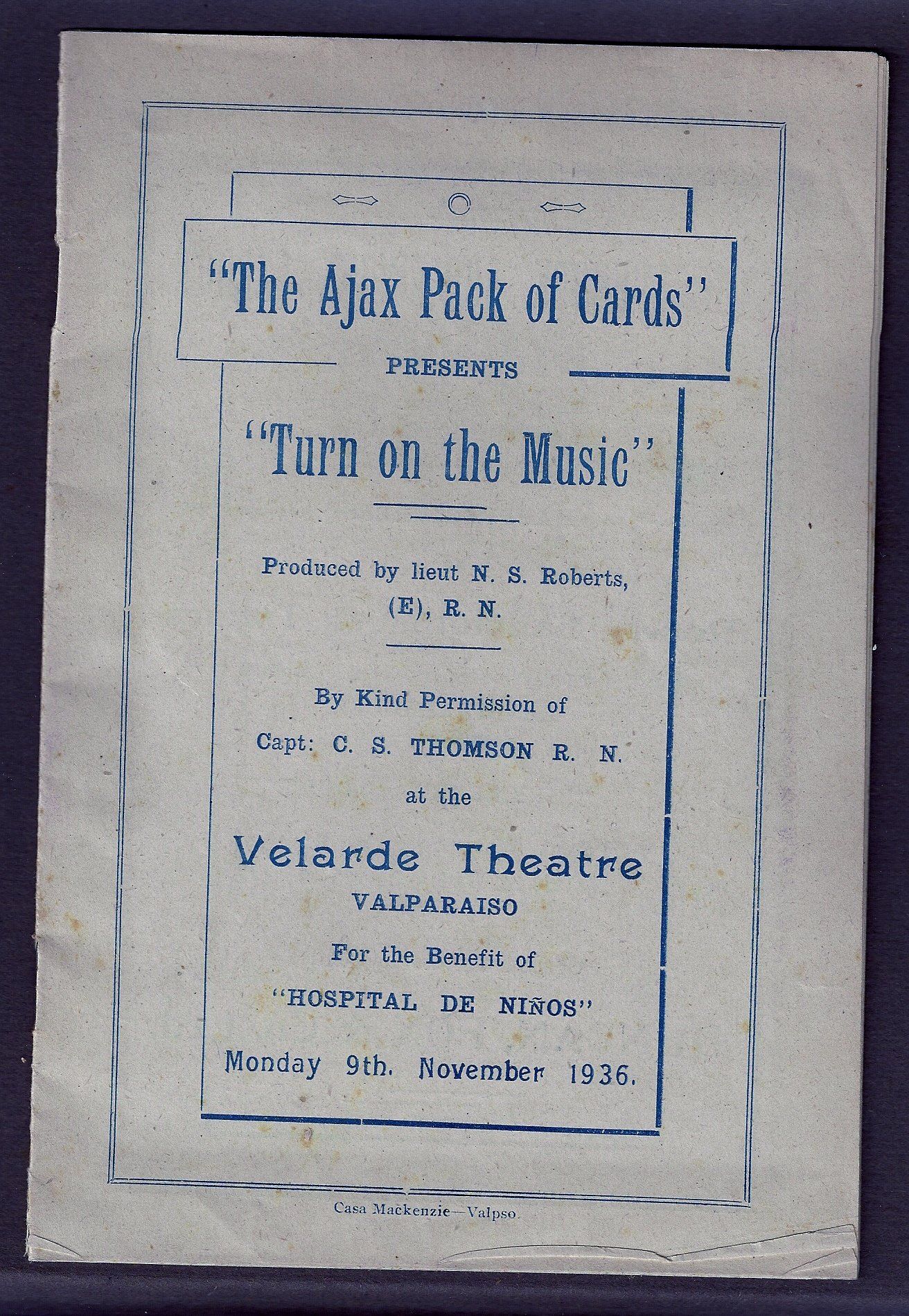
Slide title
Write your caption hereButton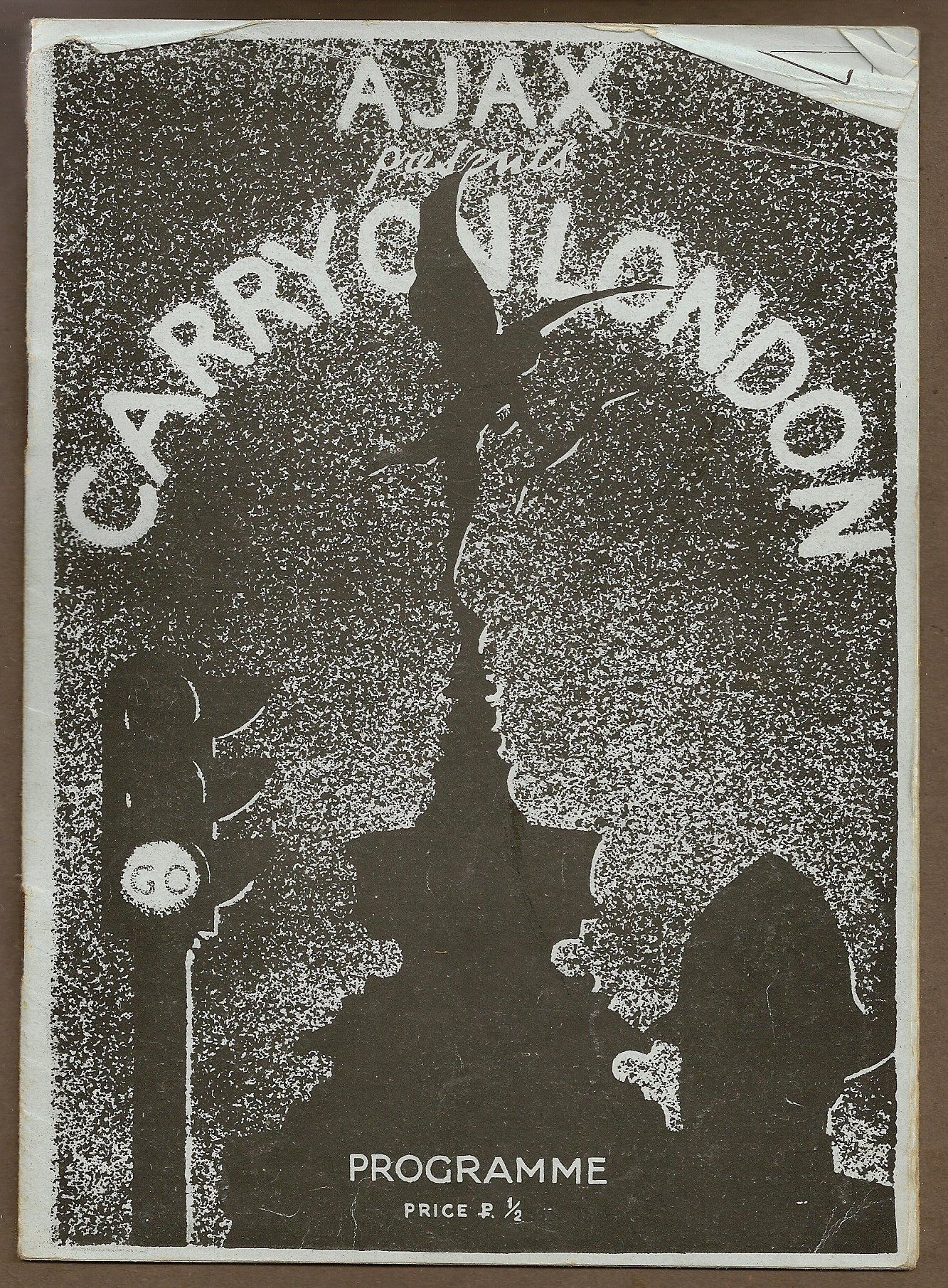
Slide title
Write your caption hereButton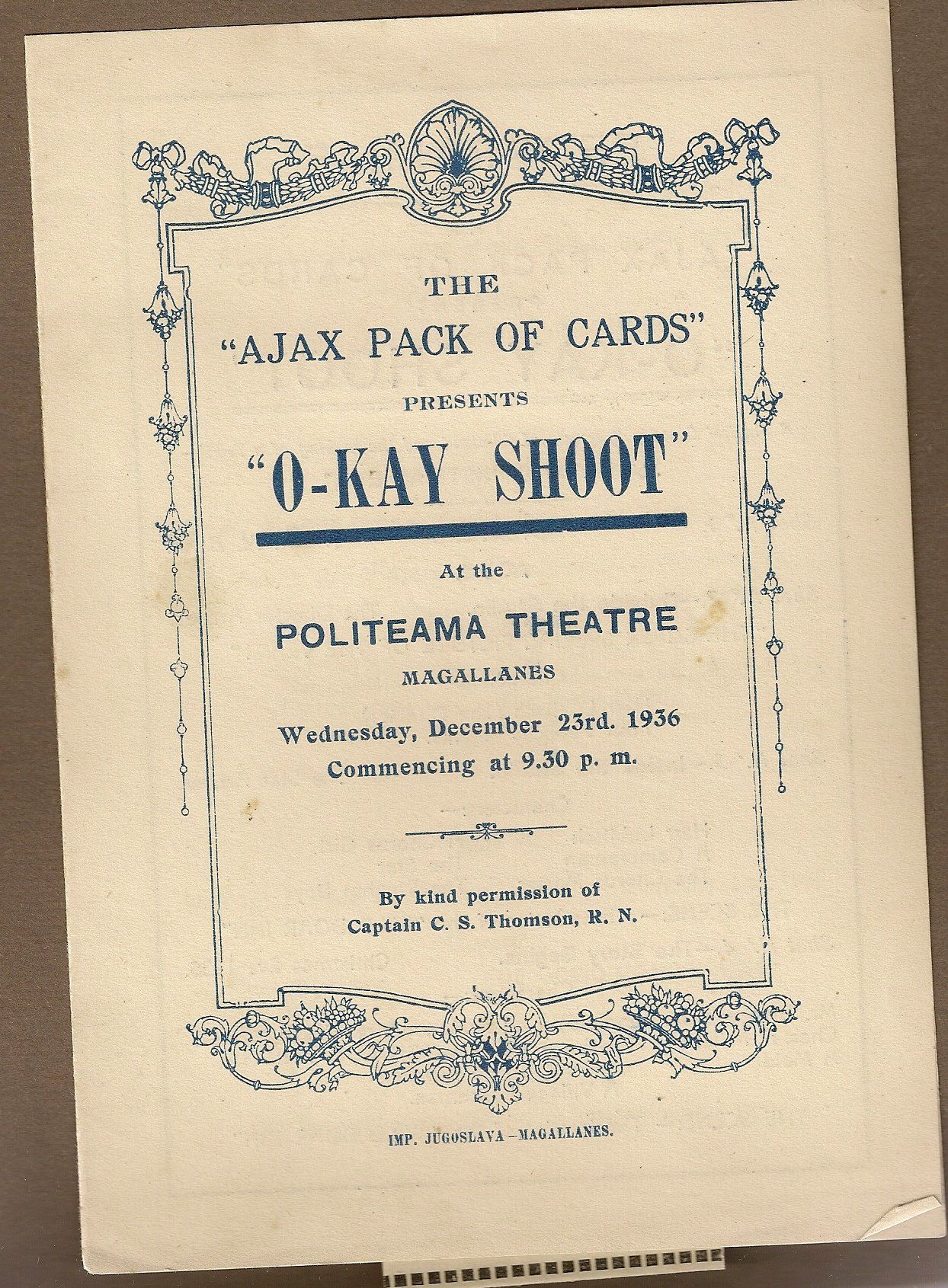
Slide title
Write your caption hereButton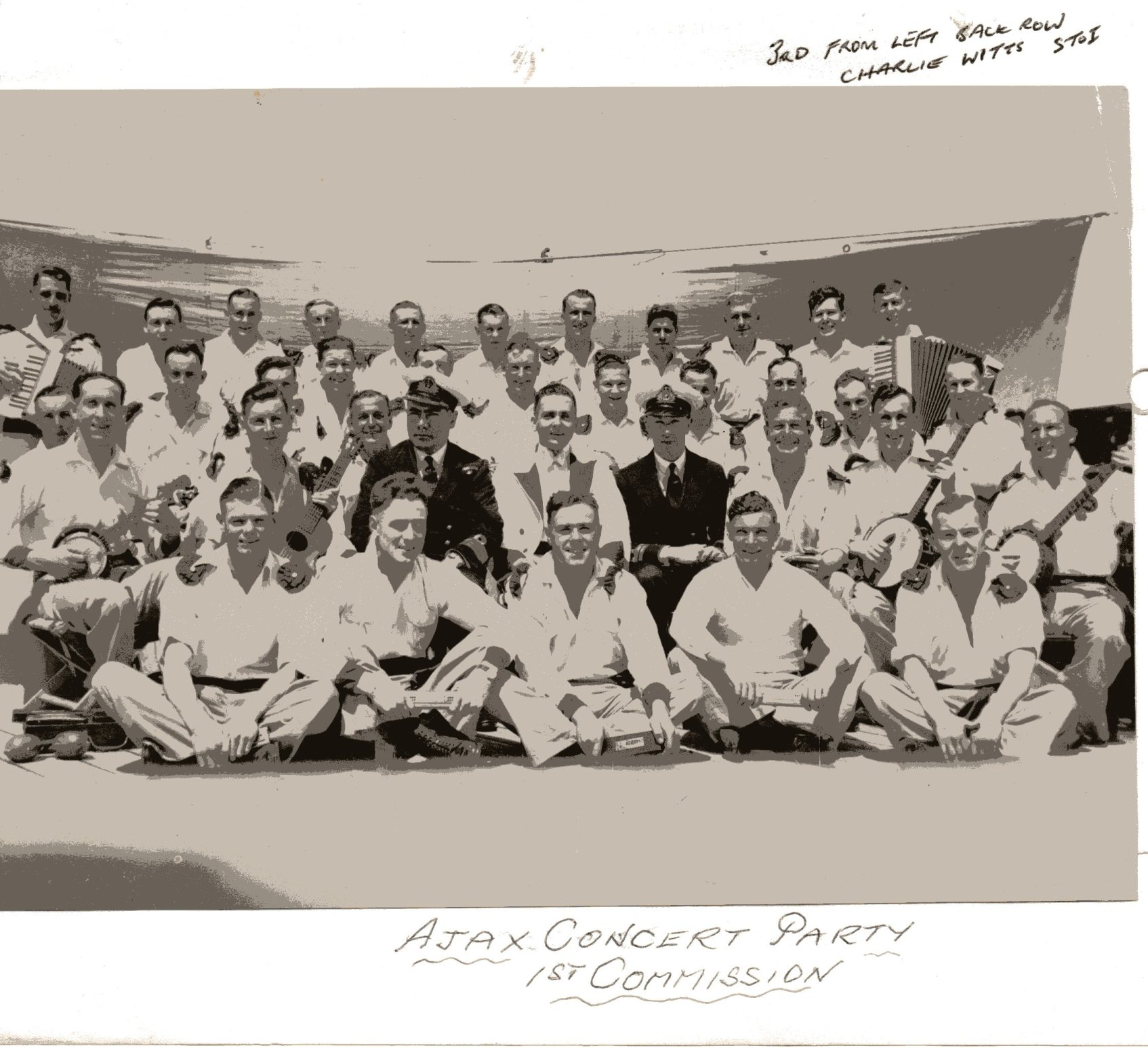
Slide title
Write your caption hereButton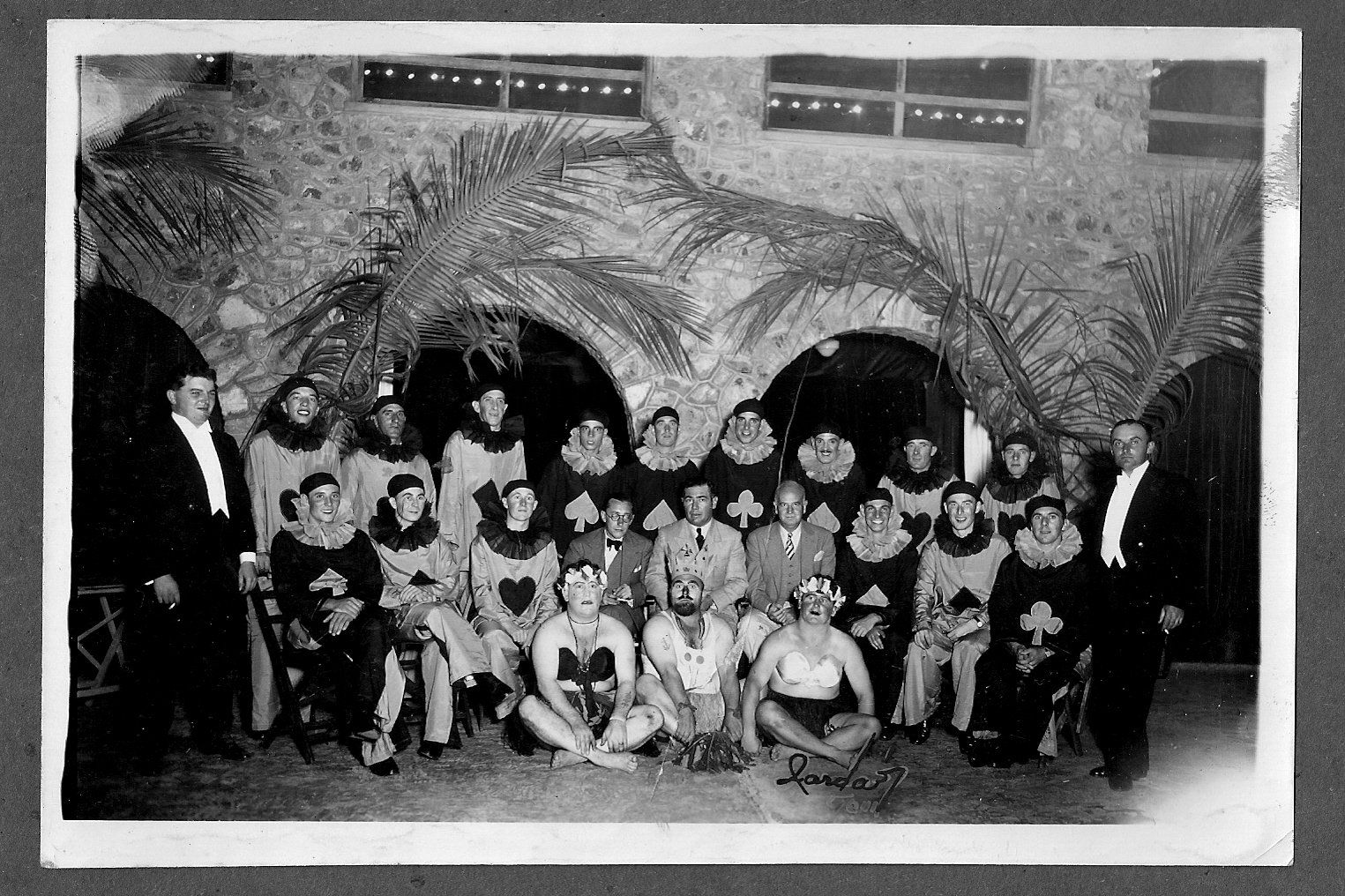
Slide title
Write your caption hereButton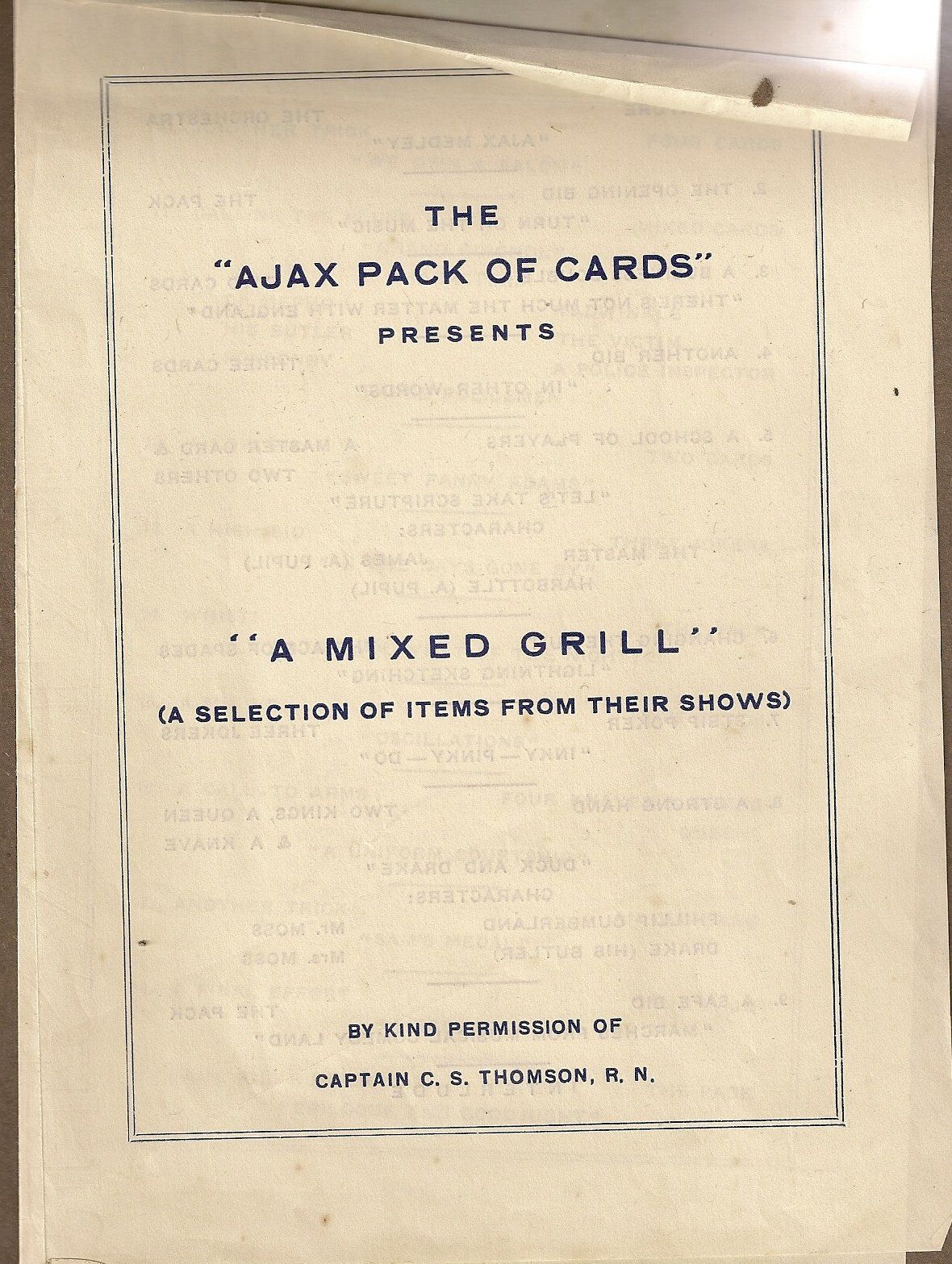
Slide title
Write your caption hereButton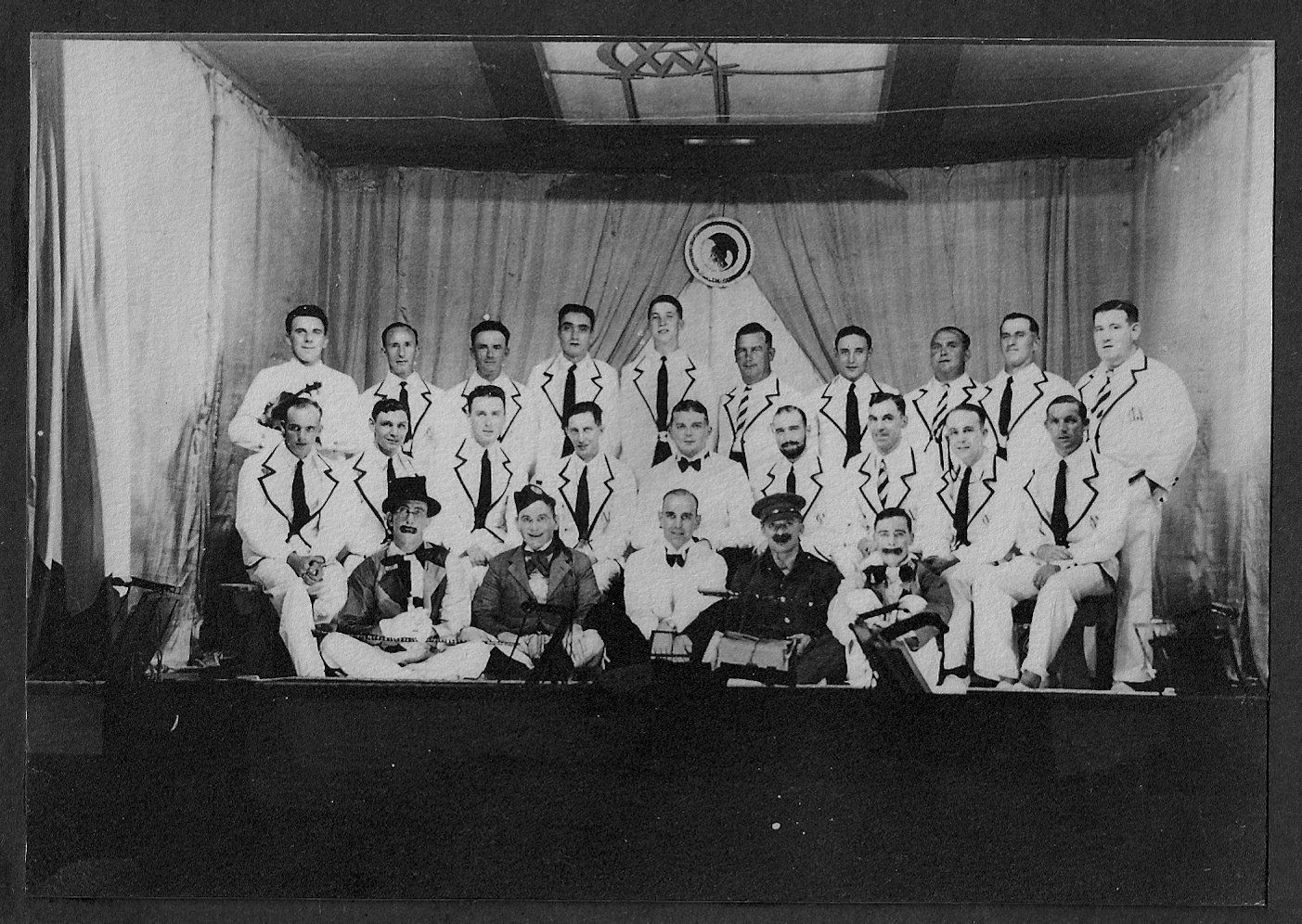
Slide title
Write your caption hereButton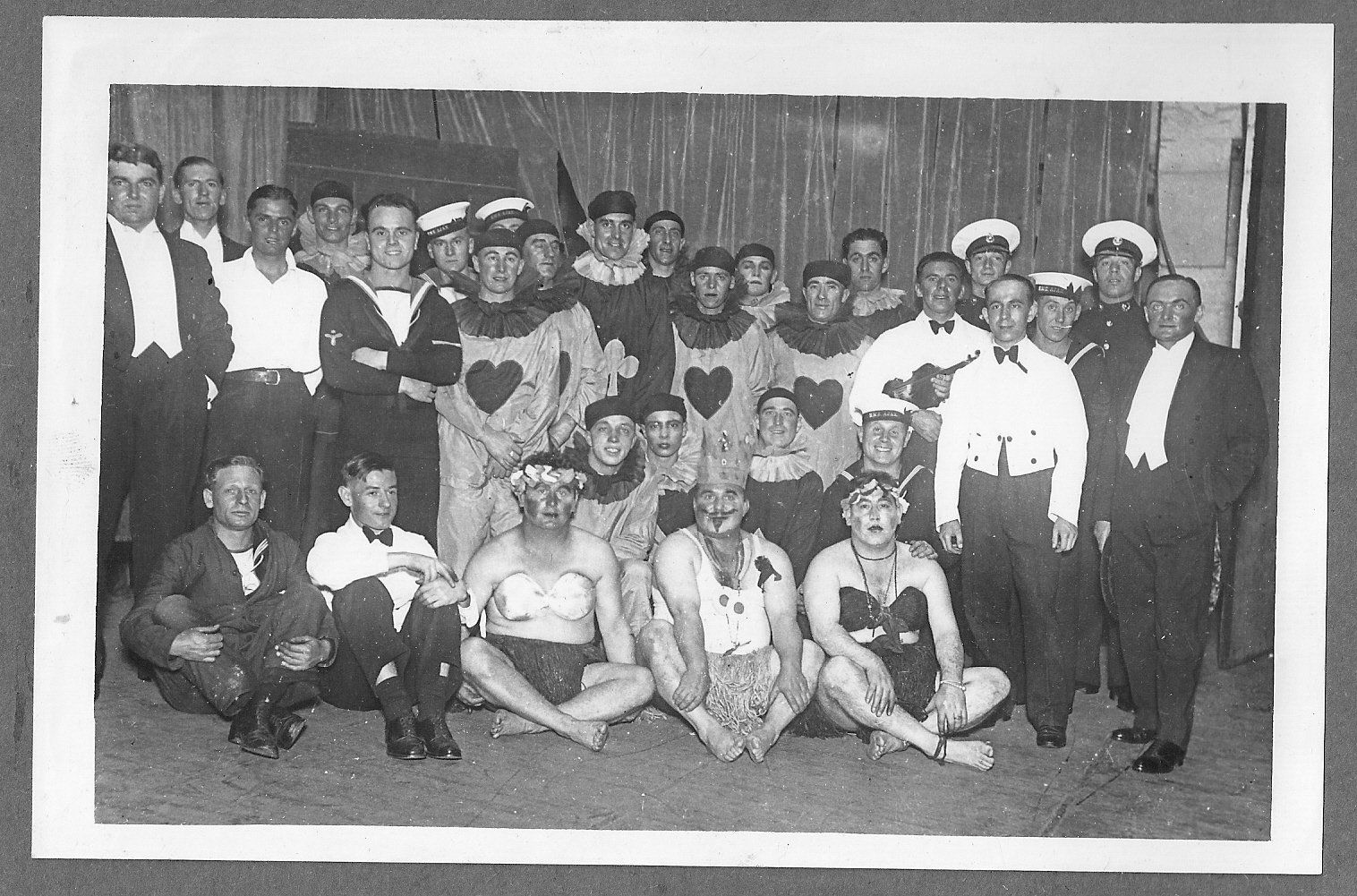
Slide title
Write your caption hereButton
EXTRACT FROM "GRIPPO" ON THE CONCERT PARTY
In writing of the Concert Party and its vigorous life through the Commission, one set of people must immediately have the limelight thrown upon them. Unaccustomed to the glare of the footlights, never seen by the audience and unnoticed in the rush of a production—I have great pleasure in ringing up the curtain on:
THE WORKING PARTY
None realise more than the Concert Party themselves how much successive shows put on throughout the Commission owe to the willing co-operation of Messrs. Cowdy, Redfern, Ambridge, Laurenson, Talbot, Banham, Smith, Sanders, Lamport, Howell, Jacobs, Bosomworth, Willis, Moody, the Warrant and Chief Shipwrights and staff, and later in the Commission, Inst.-Lt. Dykes, our stage manager. They have never complained at the large amount of work imposed on them nor raised a single objection against the little extra touches which are always demanded nor shown anything but equanimity at that most thankless task of all—namely, unrigging a stage the morning after. Without them none of the settings which were such a feature of Lt. Roberts's productions could have materialised, nor could any of the more startling effects have been achieved (the most arresting effect of all—namely, a gratuitous black-out by a blown main fuse at Iquique—had nothing to do with them).
Co-partners in back-stage fame (only they happen to be front-of-house) are:
THE BAND
Under the able leadership of Bandmaster C. H. Brown, who has orchestrated some seven complete scores, the Royal Marine Band has played its part loyally and given its time up freely to rehearsals and to learning long and at times complicated parts. In many Concert Parties the Band is taken much "as a matter of course." It turns out its quota of music in the style of an animated hurdy-gurdy. Such has never been the case in Ajax, where co-operation has been easy, pleasant and effective. Band, take a bow!
And so we come to the main body of the party—to the actors, good, bad and indifferent, who have each contributed something to the record of success which the Ajax Pack of Cards is able to turn in at the end of the Commission.
That record started in a humble way—its first and smallest show was on the ship's quarter-deck at Haifa; its largest show was at Valparaiso, where the theatre held 1,800; its most successful show was at Lima, where in one night it took over £110; its biggest flop at Iquique in Chile, where out of an audience over 1,000 strong scarcely 200 spoke or understood English.
Here are the shows given by Ajax Concert Party in chronological order:
"'AJAX' WHITE *****"
At Haifa on 11th October 1935. This admittedly amateurish effort nevertheless went with spirit and one number—" A Musical Commander's Defaulters"—will long be remembered as the best laugh-raiser in the show.
"CHRISTMAS CRACKERS"
This was a Christmas show also staged on the quarter-deck. Lt. Roberts had intended to work up a Musical Comedy for Christmas but early in December got appendicitis and Pay-Sub.-Lt. Tute took over production. This show was handicapped by lack of space, but it was in this that individual talent began to distinguish itself—Titheradge as Father Christmas, handing out presents and wisecracks, Cowdy with his skilful cartooning, Parratt as Madame No-Nix, the robust fortune-teller who gazed pensively into a balloon and answered the audience's somewhat awkward questions, Hobbs pounding magic into his piano and Pitt drawing it out of his violin, and Messrs. Fryer, Ames, Buckett, Hare, Chadwick and Woods in various sketches, of which Old Moore's Almanac probably stands longest in memory.
"CARRY ON LONDON"
This revue was a big advance. First staged on board on 26th and 27th March 1936, these were the last productions we did on the quarter-deck. This revue was later repeated for a run of three nights at the Bellevue Cinema at Alexandria, and its farewell performance took place at Talara in Peru.
Before leaving the Mediterranean, rumours of our performances had penetrated to Haifa, to the Western Desert, Where we were invited to brave the sand, give two concerts for the Army and sleep in tents—and to Malta, which expressed great disappointment that lack of time made a show at Corradino impossible.
By the time we arrived on the West Coast of South America we had another almost ready, but at Guayaquil, Ecuador, it was insufficiently polished, so members of the party put on a floor show of individual turns which was accounted a success. At Talara, again, where we had only four days, it was decided to stay our effort until reaching Lima—so that once again we "Carried On London" and, playing to a capacity of £25, successfully buried the show.
Then came Lima.
"TURN ON THE MUSIC"
This had its premiere at the Lima High School. The show was, I think, good, but the reception was nothing short of marvellous. It took us by surprise.
There is an old theatrical dictum that "a bad dress-rehearsal means a good first night." Perhaps that was the reason. Certainly the dress-rehearsal was shriekingly bad. Everything went wrong. Cues were missed, scenery didn't fit, the jokes were painfully unfunny and the producer was observed to be sitting in a corner weeping salt tears and, moreover, bald—having torn out all his hair. "Nothing," we agreed dolefully, "could possibly be worse than this show." And nothing, as it turned out to be, was such a success. I have said elsewhere that it took over £110. After the show H. B. M. Minister and Mrs. Forbes asked the party along to the Legation and congratulations were universal.
Then came Iquique. And, as the Americans say, was that a flop or was it? As explained elsewhere, the British population of Iquique is rapidly dwindling. This was brought out in no place more clearly than in the Teatro Municipal. Jokes, which in Lima had brought tears to the eyes through laughter, now brought them for another reason. You could hear those quips give their death-rattle before they ever left the throat. However, the Mayor thought otherwise (the elections being only a month ahead) and sent us a flowery letter of thanks containing in one sentence, just 170 words long, statements such as: " The worthy sailors showed a singular enthusiasm for the humanitarian aim in view (presumably the Children's Hospital) and revealed also that their artistic culture reached a professional perfection which … did honour to the British Nation (phew!) whose sons wherever they go know how to leave 'recuerdos' of their gentility and nobility …. ‘recuerdos' made imperishable and unrubbable-out when they carry the stamp of generosity and humanitarianism towards misfortune, etc., etc., etc." All right so what? Despite this literary effort, no explanation was vouchsafed for the curiously small size of the recorded receipts. But elections, as we all realize, cost money….
After Iquique, Antofagasta. Here we were only allotted the built-out stage of the Railway Rancho (a small hall seating about 300) and selected numbers were put on. This too seemed to be a success.
Then after a short break came Valparaiso. Here we had reserved for us the Teatro Velarde, seating capacity 1,800. Profits from this show were nevertheless small—as we afterwards found out that we had paid double the right charge for the theatre and that through the good offices of a local resident who might have known better. The show was greeted enthusiastically though certain jokes were missed through the size of the hall (this theatre actually holds 420 more than the Palace, Shaftesbury Avenue, and 300 more than the Adelphi where C. B. Cochran stages his revues).
By the time we reached Magallanes a new show was ready. This was:
"OKAY SHOOT"
This was the first Ajax show with any real story. It was in experiment and was later modified and cut and produced at Barbados under the title of "Inn of Adventure." The story was simple. It dealt with an Inn (Innkeeper Parratt) to which Charles K. Miller (Cowdy), an American, comes. Miller thinks this is the Inn that his forefathers once owned .... and after reading a book on the subject falls asleep. The Second Act is a throw-back 150 years with the setting of the same Inn at that period, and in the Third Act Miller returns to the present day.
Around this bare-looking plot were built various other themes such as the arrival of a company of travelling players (led by Pitt) and of two unsteady revellers (Lt.-Cdr. Lambert and Pay.-Lt. Tute). This show, though not perhaps as funny as a straight variety show, was the most ambitious we have attempted and contained more colour and music than any other.
At the Falkland Islands, where Buckett's "Parson" was thought "blasphemous," we put on a variety show. The Town Hall in Port Stanley has a fair stage with a very good curtain, reputed to have cost £80. Further inquiries concerning this curtain elicited a story about a previous Governor, himself a keen producer, and the old type roller curtain then in use. At the end of one of his introductory speeches his tails unfortunately got caught in the roller and he was seen to ascend to the ceiling for all the world like some gigantic flying beetle. Hence the present blue velvet curtain.
At Montevideo we were specially asked for and gave another variety show, which turned out to be one of the most successful both theatrically and financially (capacity £45) of our career. Everyone was pleased at this result, as it was Lt. Roberts's last night in the ship, and without his initiative it is safe to say that the Concert Party would have grown along more conventional lines with a good chance that the talent available in the party would not have been so successfully developed. At 8 the next morning we said good-bye to our producer (now perhaps running a show in Rodney—his new appointment) and set to work preparing for the next show, which was at Barbados.
This appreciation had perforce to be written before our last shows were given, so its record is necessarily incomplete*. It is hoped, however, that some idea of our many activities has been given.
LIST OF THE PLAYERS
A. L. Ames M. W. Jennings H. M. Smith D. J. Buckett L. A. Lambert F. A. Talbot G. J. Chadwick J. A. Parratt
R. Titheradge H. E. Chappell L. T. Pitt W. S. Tute R. J. Clarke E. H. Rampling S. H. Warn E. R. Cowdy N. S. Roberts
W. J. White L. E. Hare F. Reed C. J. Witts H. Hobbs A. Rogers F. G. Woods R. Hook H. Saunders
STAGE STAFF
J. W. Redfern J. A. Laurenson D. Bosomworth W. J. Carleton G. Deadman H. Jacobs W. H. Lever S. Smith F. A. Talbot
W. C. Ambridge E. G. Bennett W. J. Banham F. J. James R. N. Sanders F. Willis W. J. Francis C. J. Lamport J. G. Moody
V. T. Wilks
Producers: N. S. Roberts W. S. Tute
Stage Managers: E. R. Cowdy H. E. Dykes
Band under the leadership of Bandmaster G. H. Brown.
*The following appears in the “ROLLING HOME” programme:
Tuesday 8th June and Wednesday 9th June 1937
“Rolling Home” is the last revue which the Ajax Concert Party will give this commission. In August we return to England and our company of two years standing must necessarily be broken up. This farewell show, therefore seems a suitable occasion on which to glance back and briefly recount our history. It is hoped that no one will dub these few words as self-satisfied bragging. Such is in no way our intention, but we venture to hope that perhaps you may regret, as we do, that there is no more time now to go even further and higher.
Our career started in Palestine, where we had been sent during the recent Italo-Abyssinian war. The first variety show was given from a built up stage on the ship’s quarterdeck. But we aimed higher than that. A few months later we were able to present a full revue called “Carry On London” – first on board and then for a run of three days in a theatre at Alexandria.
Ajax then returned to the America and West Indies Station and in September of 1936 gave shows in Ecuador and Peru. At Lima, capital of Peru, we gave perhaps the most successful revue of our career. It was called “Turn on the Music” and in one single night took over £100 for charity. We continued to give entertainments of different sorts and varieties to the various British communities in Chile – culminating with a Christmas Musical Comedy at Magallanes in the Straits of Magellan.
On our journey up the east coast of South America we gave a cabaret show at Buenos Aires and a revue at Montevideo and at Barbados repeated our musical comedy “Inn of Adventure”, playing to capacity and taking £84 in one night.
Thus we come to Bermuda and the end of the ship’s first commission. It is hoped that tonight’s entertainment may prove to be a fitting farewell …..
HMS Ajax & River Plate Veterans Association
Email h.m.s.ajax.rpv@gmail.com
Contact Us HERE
